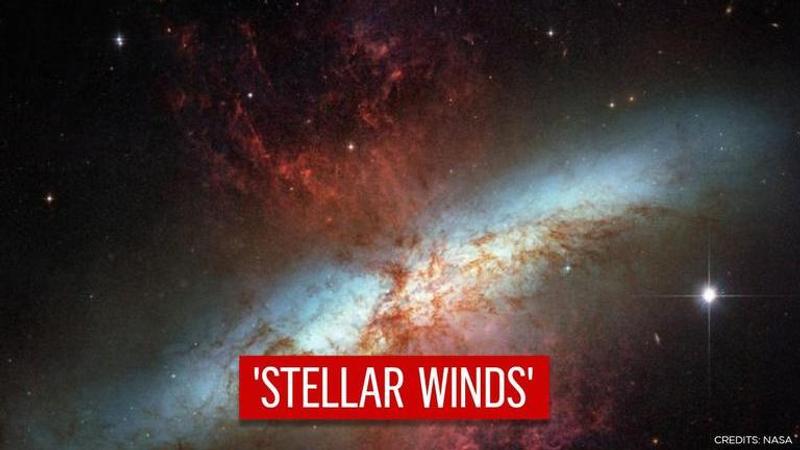Published 13:31 IST, January 16th 2021
'We're going stargazing': NASA shares photo of Cigar galaxy with 'Mean Girls' reference
“Stellar winds streaming from hot new stars form galactic superwind that blasts out plumes of hot gas and a huge halo of smoky dust," NASA explained about M82.

On January 15, NASA shared the iconic imagery of the M82 or the Cigar galaxy, with a tweak in the Mean Girls movie reference. Taking to its official Instagram handle, the space administration shared the Messier 82 photograph captured by NASA’s Hubble telescope with a caption, "Get in loser, we're going stargazing,” giving the cosmic twist to the “Get in loser, we're going shopping,” a popular dialogue from the 2004 teen comedy. Furthermore, NASA explained the Cigar galaxy alongside the image, saying, “Stellar winds streaming from hot new stars form a galactic superwind that blasts out plumes of hot gas (red) and a huge halo of smoky dust (yellow/orange) perpendicular to the narrow galaxy (white)”.
In the image, the M82 or the Cigar galaxy can be seen shining brightly at different infrared wavelengths. According to NASA, at the galaxy’s center, young stars are born 10 times faster. The remarkable new stars formed create radiation and energetic particles, resulting in the galactic winds that compress enough gas to make millions of more stars. “The Cigar galaxy experiences gravitational interactions with its galactic neighbor, M81, causing it to have an extraordinarily high rate of star formation — a starburst,” NASA informed.
[This star chart for M82 represents the view from mid-northern latitudes for the given month and time. Credits: NASA/ Image courtesy of Stellarium]
Best observed in April
When the galaxy’s rapid star formation turns more vigorous, the galaxy consumes material needed to build stars, creating a mega starburst, which then eventually subsides. As per NASA’s blogpost, a German astronomer Johann Elert Bode discovered the mystical cigar galaxy in 1774. It is located 12 million light-years from Earth in the constellation Ursa Major. M82 has a magnitude of 8.4 and is best observed in April.
“Researchers used the Stratospheric Observatory for Infrared Astronomy, magnetic field data, and tools that have been used extensively to study physics around the Sun to extrapolate the magnetic field’s strength 20,000 light-years around the galaxy,” NASA explained. It added that the galaxy’s highways that indefinitely travel into intergalactic space, like the Sun’s solar wind, can explain to the scientists how the gas and dust emitted from the galaxy travelled at such farther distances.
Updated 13:29 IST, January 16th 2021




